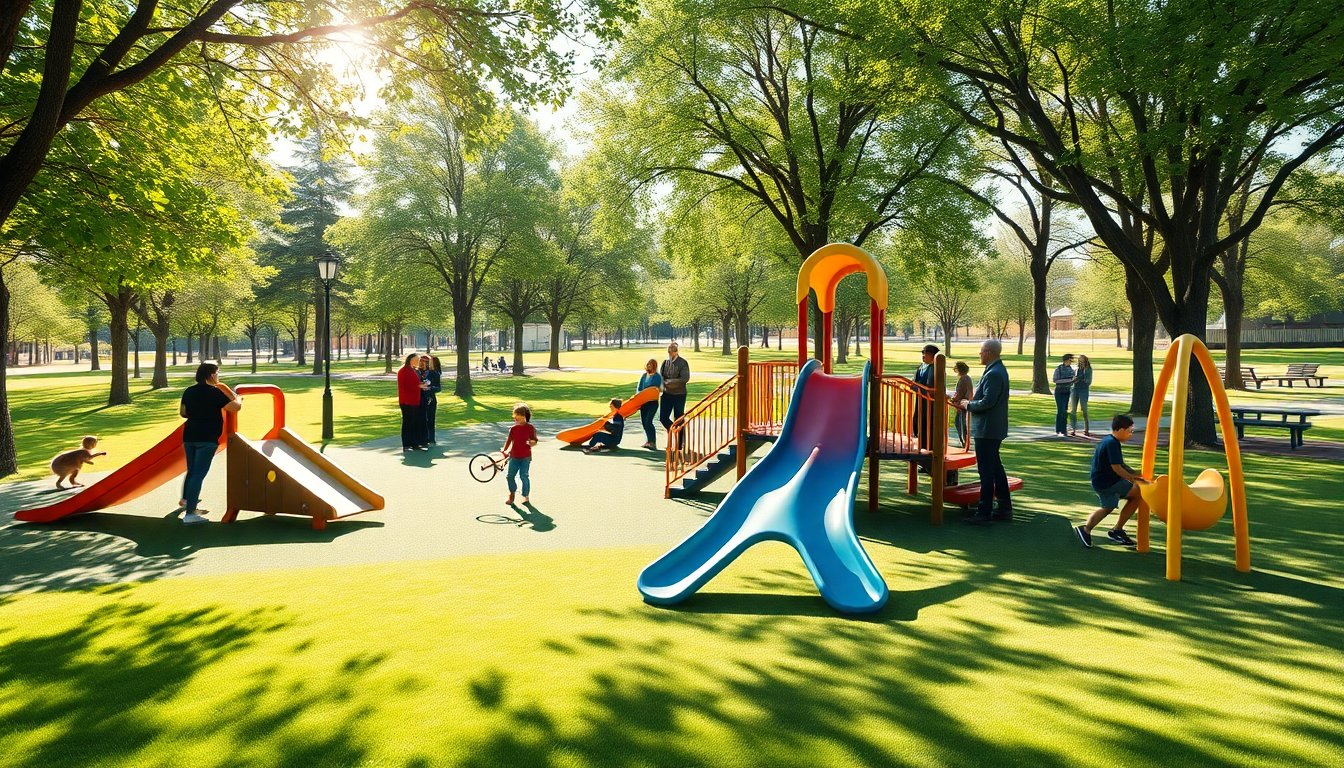Table of Contents
In the heart of Regina, a significant transformation is on the horizon for the city’s playgrounds. The city currently has a total of 152 playgrounds, but only six are designed to be accessible. This disparity is set to change following a unanimous decision by the city council to create a more inclusive environment for all children.
Ward 5 Councillor Sarah Turnbull, a long-time advocate for accessible play spaces, has been at the forefront of this initiative. Her commitment to this cause is deeply personal, stemming from her experience as the mother of Blake Turnbull, a six-year-old who uses a wheelchair for mobility. This personal connection has fueled her determination to ensure that all children, regardless of their physical abilities, have the opportunity to play.
Advocacy for change
Turnbull’s advocacy for accessible playgrounds predates her tenure as a city councillor. She has consistently emphasized the importance of creating spaces that allow every child to engage in play, social interaction, and physical activity. Acknowledging the social and developmental impacts of play, Turnbull has championed the need for inclusive design in public spaces.
The role of community support
The movement for improved accessibility has garnered substantial community support. Parents, caregivers, and advocates have rallied around the cause, sharing their stories and urging city leaders to prioritize accessibility in playground designs. This grassroots support has been essential in bringing attention to the issue and emphasizing the need for change.
Community engagement has also played a critical role in shaping the vision for these new playgrounds. By listening to families’ experiences, the city can better understand the specific needs and desires of its diverse population. This collaborative approach ensures that future designs will meet accessibility standards while fostering an inviting atmosphere for all children and their families.
Future plans for accessibility
The city council’s recent vote signifies a pivotal moment in Regina’s approach to playground accessibility. With plans to enhance existing playgrounds and construct new ones, the council aims to ensure that every play area accommodates children with various needs. This includes incorporating adaptive equipment, accessible pathways, and sensory-rich environments that engage all children.
As the city progresses, there will be a focus on integrating feedback from families into the design process. This effort will help create playgrounds that not only comply with accessibility standards but also promote a sense of belonging and enjoyment for every child. Inclusive play is vital for fostering friendships, encouraging physical activity, and developing social skills, making these enhancements crucial for the community’s well-being.
Examples of accessible features
Accessible playgrounds are designed with various features catering to children with different abilities. Examples include wheelchair-accessible swings, tactile play panels, and sensory gardens that stimulate exploration and learning. Additionally, smooth, paved pathways ensure that children using mobility devices can navigate the playground with ease.
Moreover, incorporating visual and auditory elements can enhance the play experience for children with sensory sensitivities or impairments. By creating diverse play experiences, these playgrounds can serve as a model for other cities looking to improve accessibility in their public spaces.
A brighter future for all children
As Regina embarks on this journey towards enhanced playground accessibility, the impact will extend beyond physical spaces. It represents a commitment to inclusivity and acknowledges that all children deserve the right to play, regardless of their abilities. The changes being implemented will foster an environment where children can explore, learn, and grow together, creating a stronger community.
Ward 5 Councillor Sarah Turnbull, a long-time advocate for accessible play spaces, has been at the forefront of this initiative. Her commitment to this cause is deeply personal, stemming from her experience as the mother of Blake Turnbull, a six-year-old who uses a wheelchair for mobility. This personal connection has fueled her determination to ensure that all children, regardless of their physical abilities, have the opportunity to play.0


